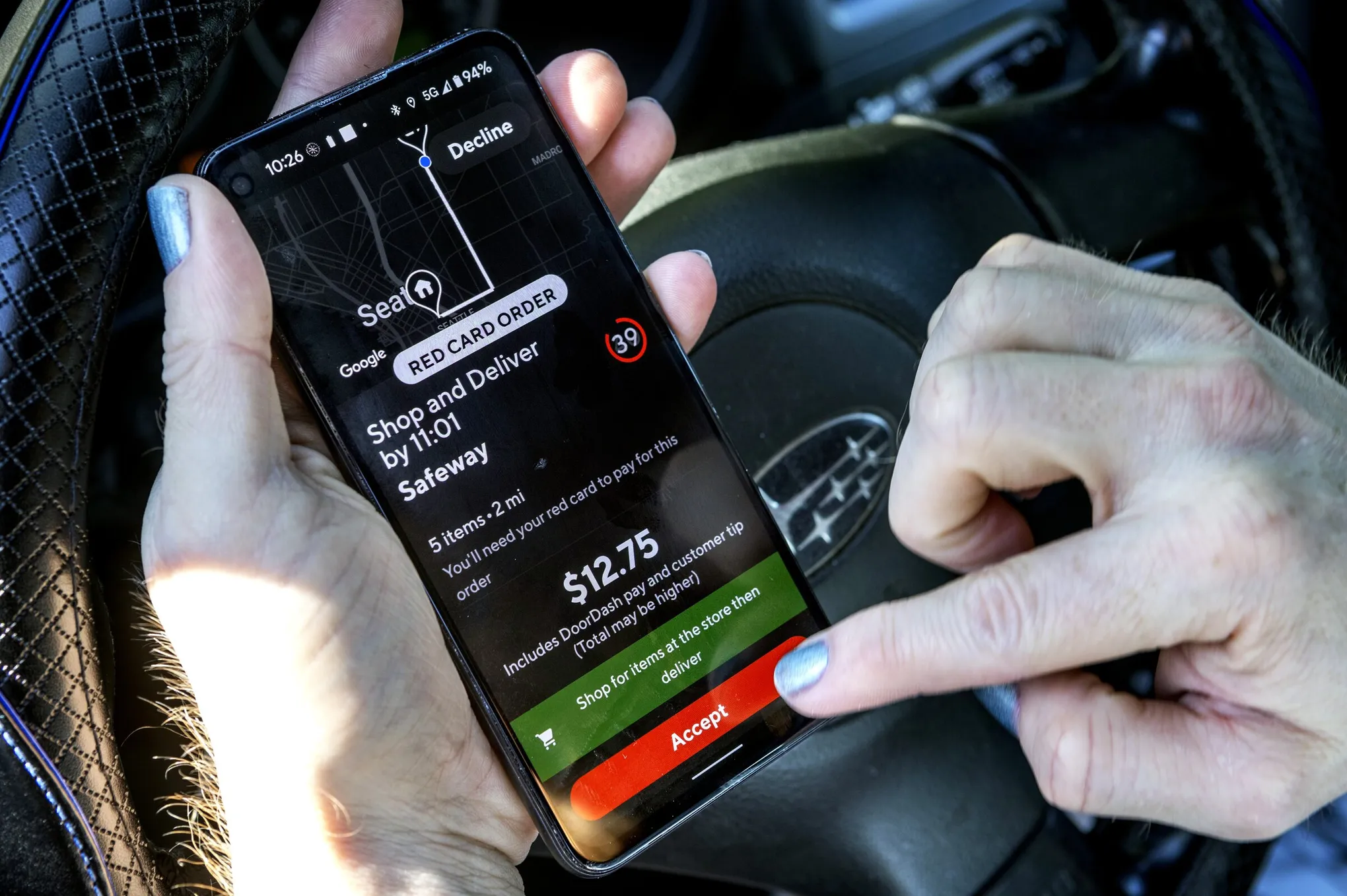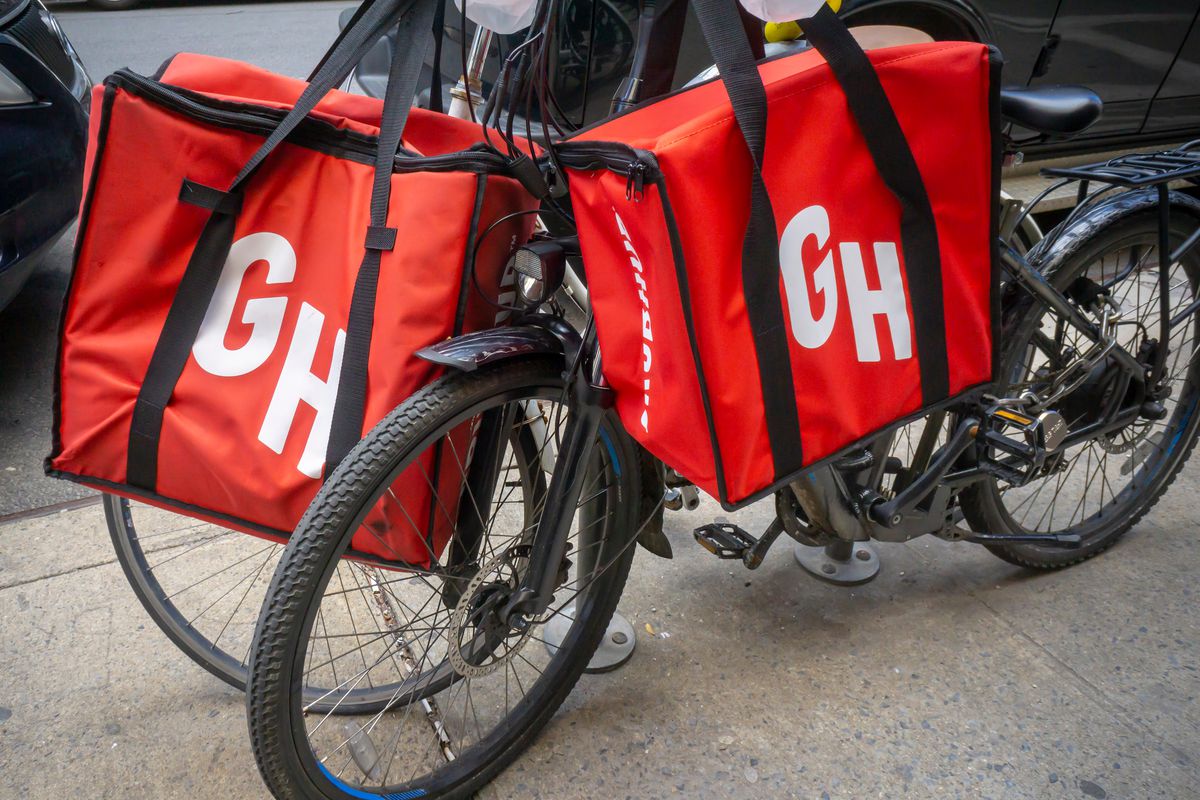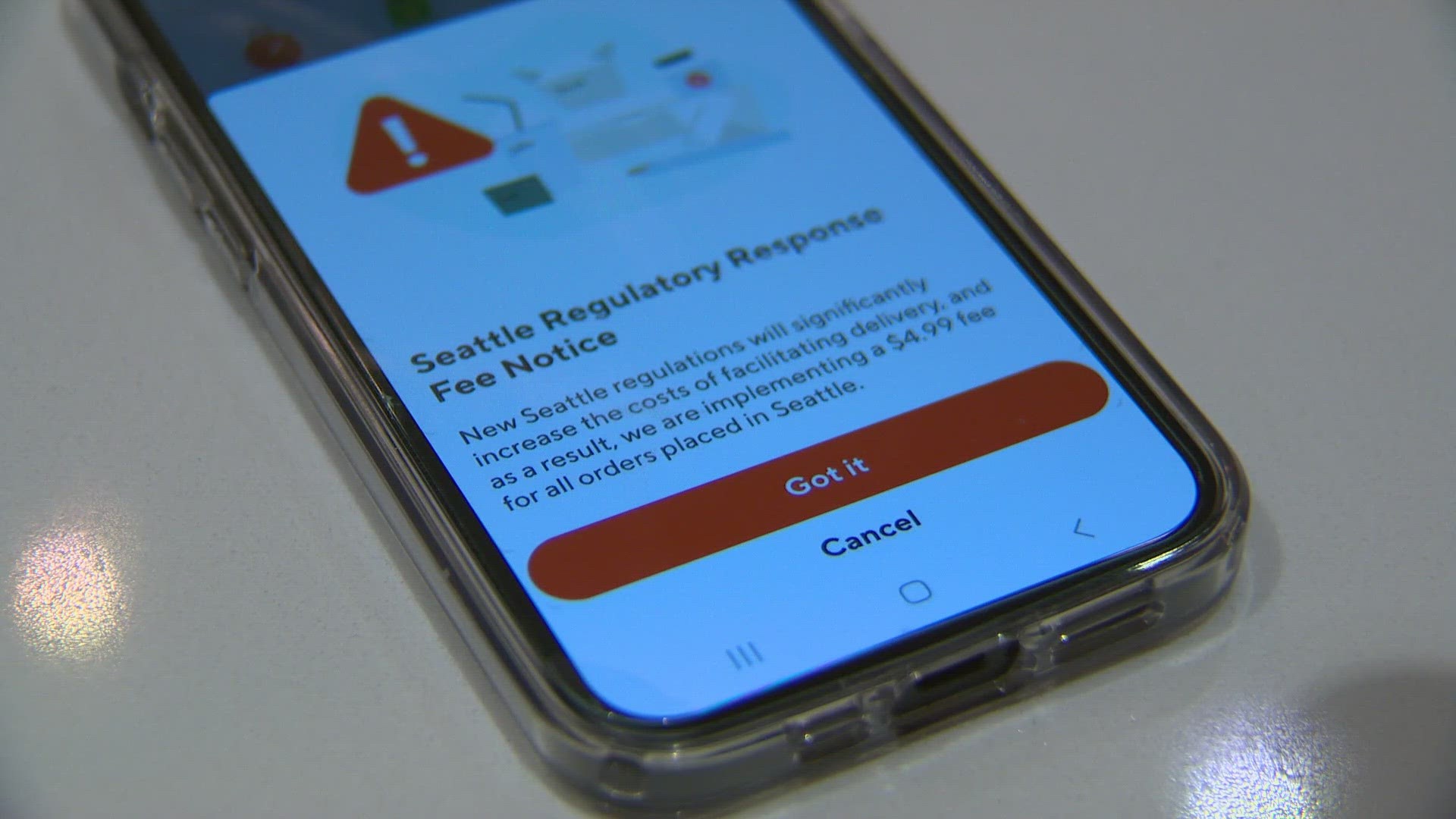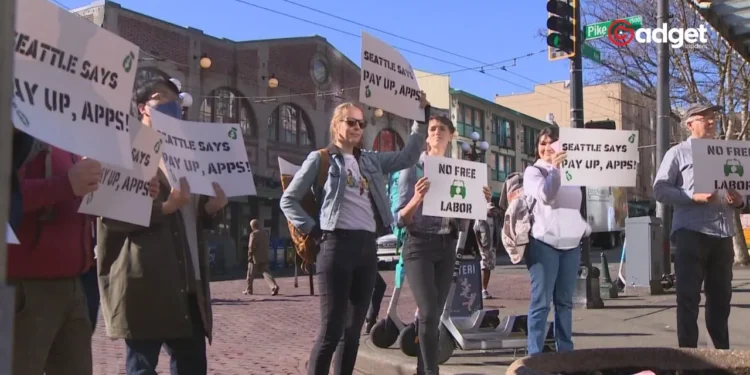A new complaint has been filed with the Federal Trade Commission (FTC) by nonprofit law firm Towards Justice on behalf of Seattle resident Robert White. The complaint alleges that Uber and DoorDash are deceiving customers by adding misleading fees to their orders following the implementation of a new minimum wage law in Seattle.

Seattle’s minimum pay law, which came into effect in January, aims to protect independent contractors who deliver food. In response, Uber and DoorDash added a $5 fee to each order, which they attributed to increased operating costs. However, this led to a decline in demand, prompting the companies to lobby both customers and lawmakers for changes to the legislation.
Claims of Misleading Fees
White, who has been using food delivery apps for several years, began to question the new fees earlier this year. He noticed that the $5 charge did not vary based on the distance of a restaurant from his location or the time spent by a driver delivering an order, which raised suspicions about the legitimacy of the fees.

“I hope the FTC intervenes and says this is an illegal practice,” White, a data manager for a Seattle-based nonprofit, told GeekWire. “These are junk fees. They are deceptive. They’re not actually tied to the service that’s being provided.”
The complaint argues that the $5 fee is a “junk fee,” a term the FTC has used to describe “hidden and bogus fees that can harm consumers and undercut honest businesses.” It also claims that Uber and DoorDash mislead consumers by implying that the fee is mandated by the City of Seattle and misrepresent the total cost of delivery.
Responses from Uber and DoorDash
Uber describes the fee as a “local operating fee” to offset the increased cost of regulations, while DoorDash has labeled the complaint as “completely absurd and meritless.” DoorDash explained that the regulatory response fee applied to orders in Seattle helps offset costs associated with the new law.

“Unfortunately, this fee is a direct result of the law passed by the Seattle City Council,” Uber stated. “As we told policymakers before the law was enacted, to support the requirements of the ordinance and to continue to operate in the City of Seattle, the price of these services would increase.”
The FTC declined to comment on the complaint. David Seligman, executive director of Towards Justice, emphasized that while increasing prices due to changes in labor standards is not illegal, the way Uber and DoorDash present the $5 fee to consumers is problematic.
Impact on Delivery Drivers
The impact of the new law on driver pay has been mixed. Some drivers have reported earning enough to cover their rent, while others claim to be making substantially less income due to reduced demand. The Seattle City Council is set to vote on revised legislation that would lower the existing minimum wage standard from $26.40 to $19.97, aligning it with Seattle’s citywide minimum wage for employed workers.
Working Washington, a nonprofit that helped pass the original legislation, released a report indicating that the revised ordinance would result in a net pay of $13.17 per hour for drivers, factoring in expenses such as payroll taxes and mileage costs.
Broader Implications
Seattle and New York City, which also recently implemented a minimum wage for delivery drivers, have become testing grounds for the impact of labor standards in the growing food delivery market. These regulations aim to balance the flexibility and independence offered by delivery platforms with the need to protect workers’ rights.
The debate over driver pay is not limited to Seattle. In Minnesota, Uber and Lyft threatened to leave the state due to a new minimum pay law, but eventually agreed to a new pay deal. Seattle’s minimum wage legislation, part of a series of “PayUp” laws, includes provisions related to the worker deactivation process and a sick leave law for delivery workers.
As the FTC reviews the complaint, the outcome could have significant implications for the food delivery industry and its regulation across the United States.









